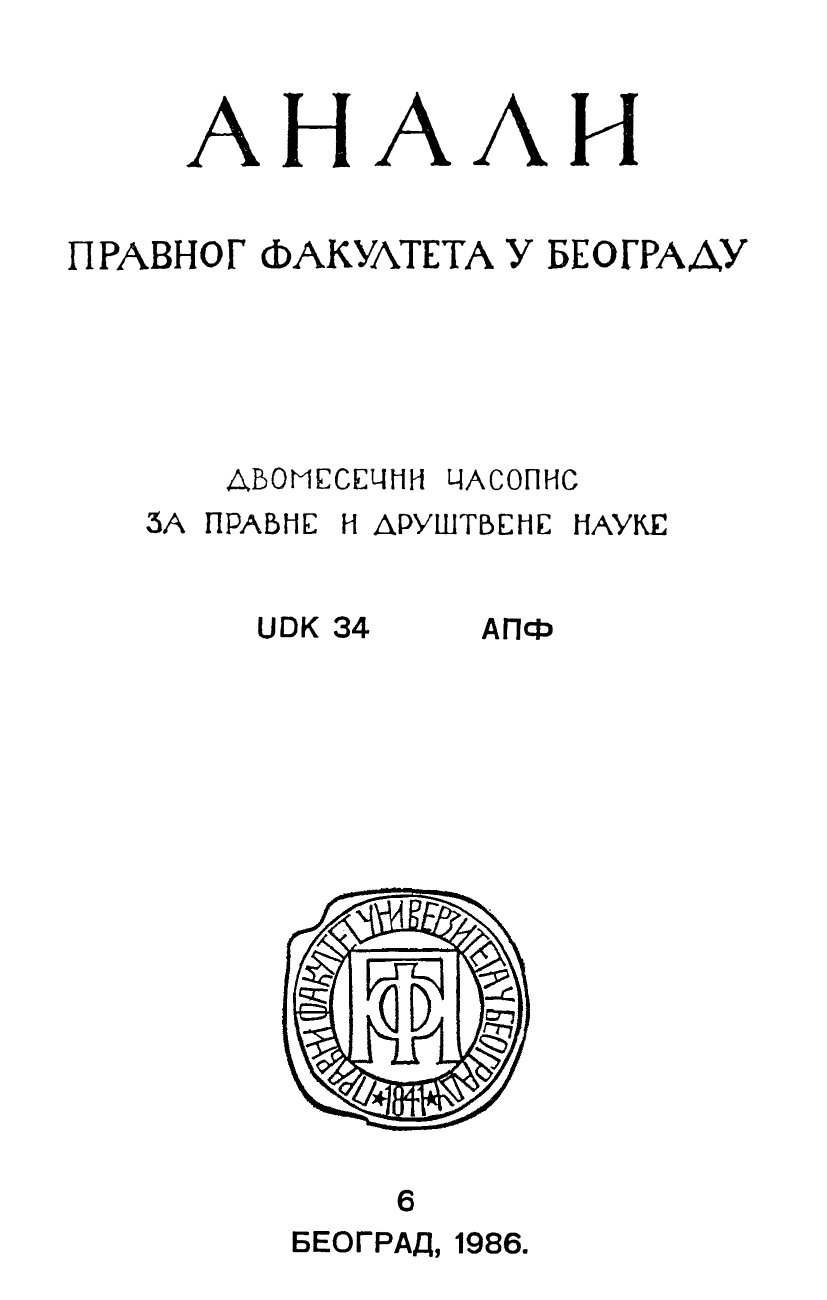ПРАВА И ДУЖНОСТИ СУПРУГА ЛИЧНЕ ПРИРОДЕ У ПРАВУ СОЦИЈАЛИСТИЧКИХ ЗЕМАЉА
INDIVIDUAL RIGHTS AND DUTIES OF SPOUSES IN THE LAWS OF SOCIALIST COUNTRIES
Author(s): Marko MladenovićSubject(s): Law, Constitution, Jurisprudence, Civil Law
Published by: Правни факултет Универзитета у Београду
Summary/Abstract: Considering at first the theoretical issues, the author points out at some particularities of the laws of socialist countries regarding their approach to the individual rights and duties of spouses. These relations are, in fact, diferencia specifica of the autonomous status of the marriage (and family) law as regards the civil law. They have also been until quite recently the ideological identity card for emphasizing the advantage of the socialist as compared to the bourgeois law, since they are proclaiming the total equality between the man and the woman in marriage. The third specificity is in the absolute advantage which is granted to the individual (personal) relations over the property law ones, which is particularly emphasized in the legal theory, and which is partly implemented also in the sphere of law-making. However, in spite of such stanдрoints, the law, namely, the statute, contains quite less provisions concerning the personal relations than it does concerning the property law relations between the spouses. This is explained, among other reasons, by the fact that the traditional law has regulated various rights of man and woman in more details, as well as that the individual relations are more and more entering the sphere of moral rules. However, in spite of the simplicity of the legal norms, the picture is deceiving, since these relations are becoming more and more complex due to the presence of the double subject and of wide possibilities of their discord, which should be affirmed also by the analysis in the present article. In the second section the author reviews the individual rights and duties of the spouses in various countries, which includes all European socialist countries, as well as, out of Europe, Cuba and China. The purpose of this comparative analysis is in stating the identical properties in the ideological approach, while also the differences which exist in the legal approach, especially in case of Cuba and China. In the third section of the article the rights and duties are considered of the spouses which are of imperative character, such as the following: the duty of honouring the equality of status; the community of life between the spouses; the duty of faithfulness (which is more and more acquiring only a moral importance); the duty of mutual aiding and complete freedom in the choice of work and profession. Finally, in the fourth section the rights and duties are reviewd and analyzed of a dispositive character, such as the following: joint and mutual coming to agreement in the sphere of decision-making (as a general norm); the choice (and a change) of name; the choice of place of residence; and having a joint household. The author particularly analyzes the only two, but distinguished examples of legal discrimination of woman in the case of change of name at concluding the marriage, which do exist in the Polish, as well as in the Hungarian law, and which are an expression to the patriarchal (namely, feudal) tradition.
Journal: Анали Правног факултета у Београду
- Issue Year: 34/1986
- Issue No: 6
- Page Range: 616-633
- Page Count: 18
- Language: Serbian

